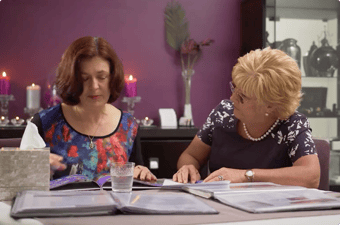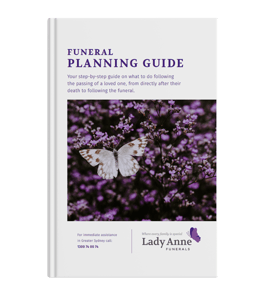Many people shy away from the subject of death. Death is a subject that worries people. They are lost for words, worrying they might say or do the wrong thing. If this is the case for you, if someone you have been close to has died; a work colleague, and old friend, a distant family member or worse still, someone from your own family, consider your words and actions.
Speaking to anyone in this situation often worries people, they are not sure what they should say, often because of this, some will waffle on, trying to fill the void.
You’ve heard people talk about ‘reading the room’. This is true when giving condolences to those who are grieving. Give a little time when you arrive at the home to absorb the atmosphere, just with a little phrase like ‘I’m sorry for your loss’ or ‘My thoughts are with you’ or ‘Just wanted you to know that we are thinking of you’. If the person grieving responds, and engages with you, that’s the time when you could share a short story that was special to you or perhaps ask if there is anything you could do to help.
Attending the funeral is much the same. Take time to see who is there, and if you feel it is appropriate, approach the family quietly. If you see that the family are greeting people, then you could approach them and give your condolences and express how sorry you are. It is probably best on the day of the funeral to make this brief, as the family will have concerns as to what they should do too. If you find the family is already seated, then it is best to take your seat in the chapel and once again be considerate that the family are preparing themselves mentally for the service to come. If you sit near a friend, be mindful that you are in a sacred service and keep your voice soft and respectful.
I have often seen people gathering around the family whilst they are seated at the front waiting for the service to start. The fact that the family have been seated first by the Funeral Director is a usually a clear indicator that they needed a little privacy and time to prepare themselves mentally for the service. I have often had to ask friends who have come down to the front of the chapel to speak to the family, to take their seat so that the service can begin. Remember there is plenty of time to talk to the family after the service, when they too will be more relaxed.
Find out a little information beforehand if you can, about what type of service it will be; if there are any requirements that the family have requested for the service. For instance, if there are any dress requirements like a certain colour of clothing or if the family have requested no flowers in lieu of donations to a certain charity in honour of the deceased.
Common sense should be observed, like arriving a little early allowing time to sign the family tribute book, and being seated before the coffin is carried in.
Make sure that your mobile is switched off or better still left in the car. I have seen people actually rushing out of the chapel to take a call on their mobile.
Be aware of the clothing that you wear and choose something modest and respectful.
During some services there is an opportunity for people to approach the coffin to say ‘Goodbye’. Always let the family and extended family approach first and then follow on after other guests according to where you are seated in the chapel.
When the service comes to an end, the Funeral Director may ask everyone, but the close family to leave the chapel so that the family have a private time to say goodbye; don’t assume because you are a close friend that this would include you, allow yourself to be ushered out with the rest of the congregation.
This is probably not needed to be said, but just as a reminder, if you have other friends there, try not to be in animated conversations; try to stay dignified as the occasion requires.
Most importantly, spend time at the service quietly going through your thoughts, saying goodbye in your own way. Life is busy, we rush around keeping everything going and don’t often stop to reflect on friendships and bonds we have with others in life. This time, this sacred time, no matter what your spiritual views are, is a time to reflect on what this person, your saying goodbye to, what he/she brought to life, there may be a lesson in that for you. Maybe you can carry something forward in honour of what has been shared.



.png?width=100&height=100&name=image%201%20(1).png)


